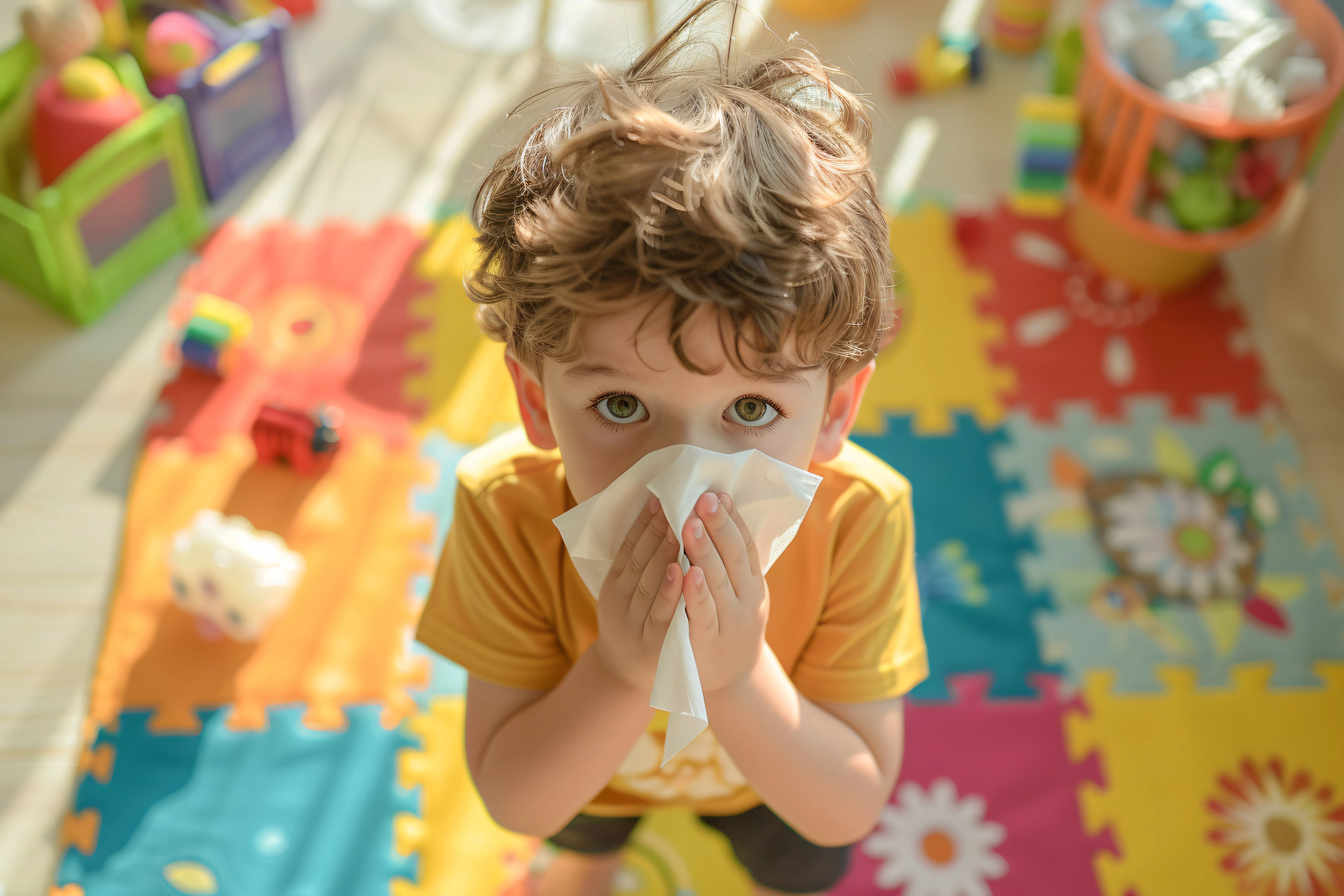"Cough in children is often a complex symptom with multiple causes, but dirty or poorly maintained air conditioners can certainly be a contributing factor."
)
When temperatures rise, air conditioning becomes essential to keep homes cool and comfortable, especially for families with young children. But if your child has a persistent cough, you might be wondering if the very system designed to protect them could contribute to their discomfort. This blog explores the connection between air conditioning and cough in children, highlighting how a dirty AC unit could be a hidden cause of ongoing respiratory irritation.
Young children, particularly newborns and infants, have delicate respiratory systems that are still developing. Their bodies are less capable of regulating temperature and defending against airborne irritants compared to adults. This makes them more vulnerable to issues caused by indoor air quality, including cough.
Air conditioners cool the air but can also lower humidity levels, sometimes creating dry indoor environments. Dry air can irritate sensitive airways and skin, potentially triggering or worsening a cough. Furthermore, if the AC’s filters and ducts are dirty or clogged, they may circulate dust, mold spores, and other allergens that directly impact your child’s breathing.
Air conditioning units trap airborne particles in their filters, but when these filters are not cleaned or replaced regularly, they become breeding grounds for dust, mold, bacteria, and other pollutants. These contaminants then get blown back into your home’s air, aggravating respiratory symptoms such as a persistent cough in children.
Inhaling these pollutants over time leads to inflammation of the respiratory tract, making cough a frequent and troubling symptom.
Direct exposure to cold air from an AC vent can also irritate a child’s respiratory system. Sudden cooling or drafts can dry out mucous membranes, potentially leading to a dry cough in children or even causing them to catch a cold.
Maintaining a stable and moderate indoor temperature, ideally between 22°C to 24°C (72°F to 75°F), helps prevent sudden airway constriction and discomfort. This temperature range ensures that children are neither overheated nor exposed to overly cold airflows.
Air conditioning naturally reduces indoor humidity, which can lead to dry air, a common irritant to young children’s sensitive airways. Dry air dries out the mucous membranes lining the nose and throat, increasing the likelihood of a persistent cough.
Using a humidifier alongside your AC system helps maintain indoor humidity between 40% and 60%, which is ideal for respiratory health. This prevents the mucous membranes from drying out, reducing irritation and cough symptoms.
Proper AC maintenance is essential to improve indoor air quality and protect your child from unnecessary cough triggers. Here are some practical steps parents can take:
Taking these actions significantly reduces the risk of pollutants circulating inside your home and helps protect your child from cough-related problems.
Beyond AC maintenance, improving overall indoor air quality is critical to alleviating cough in children. Here are additional strategies to consider:
By combining these methods with AC upkeep, you create a healthier environment that supports your child’s respiratory well-being.
"Cough in children is often a complex symptom with multiple causes, but dirty or poorly maintained air conditioners can certainly be a contributing factor."
To further support a healthy indoor environment, especially when air conditioning is in regular use, incorporating an air purifier in your child’s room can make a significant difference. Air purifiers equipped with HEPA filters help capture airborne particles like dust, pollen, mold spores, and pet dander, common triggers that can worsen or prolong a cough in children. By actively filtering out these irritants, air purifiers reduce the strain on a child’s developing respiratory system and help maintain cleaner, more breathable air. This added layer of protection is especially important for children with asthma, allergies, or sensitivity to pollutants.
While environmental improvements are important, a persistent cough may sometimes require professional medical attention. If your child’s cough lasts more than two weeks, worsens, or is accompanied by other symptoms like fever, wheezing, or breathing difficulty, consult a pediatrician. Persistent coughing could be a sign of underlying conditions such as asthma or respiratory infections that need proper diagnosis and treatment.
Cough in children is often a complex symptom with multiple causes, but dirty or poorly maintained air conditioners can certainly be a contributing factor. By understanding how AC units affect indoor air quality and taking proactive steps to keep your system clean and your home environment healthy, you can reduce your child’s coughing episodes and promote better breathing.
Remember to monitor humidity, avoid direct cold airflow, and prioritize regular AC maintenance. Creating clean, comfortable indoor air is an investment in your child’s health that pays off in restful nights and happier days.
